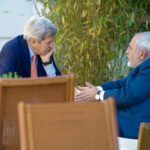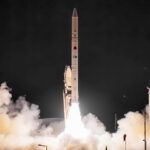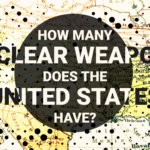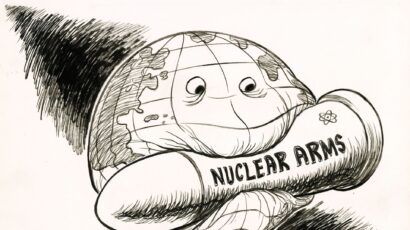The status of U.S. nuclear weapons in Turkey
By , Benjamin Loehrke | November 23, 2009
For more than 40 years, Turkey has been a quiet custodian of U.S. tactical nuclear weapons. During the Cold War, Washington positioned intermediate-range nuclear missiles and bombers there to serve as a bulwark against the Soviet Union (i.e., to defend the region against Soviet attack and to influence Soviet strategic calculations). In the event of a Soviet assault on Europe, the weapons were to be fired as one of the first retaliatory shots. But as the Cold War waned, so, too, did the weapons’ strategic value. Thus, over the last few decades, the United States has removed all of its intermediate-range missiles from Turkey and reduced its other nuclear weapons there through gradual redeployments and arms control agreements.
Today, Turkey hosts an estimated 90 B61 gravity bombs at Incirlik Air Base. Fifty of these bombs are reportedly assigned for delivery by U.S. pilots, and forty are assigned for delivery by the Turkish Air Force. However, no permanent nuclear-capable U.S. fighter wing is based at Incirlik, and the Turkish Air Force is reportedly not certified for NATO nuclear missions, meaning nuclear-capable F-16s from other U.S. bases would need to be brought in if Turkey’s bombs were ever needed.
Such a relaxed posture makes clear just how little NATO relies on tactical nuclear weapons for its defense anymore. In fact, the readiness of NATO’s nuclear forces now is measured in months as opposed to hours or days. Supposedly, the weapons are still deployed as a matter of deterrence, but the crux of deterrence is sustaining an aggressor’s perception of guaranteed rapid reprisal–a perception the nuclear bombs deployed in Turkey cannot significantly add to because they are unable to be rapidly launched. Aggressors are more likely to be deterred by NATO’s conventional power or the larger strategic forces supporting its nuclear umbrella.
So in effect, U.S. tactical nuclear weapons in Turkey are without military value or purpose. That means removing them from the country should be simple, right? Unfortunately, matters of national and international security are never that easy.
Roadblocks to removal. In 2005, when NATO’s top commander at the time, Gen. James L. Jones, supported the elimination of U.S. nuclear weapons in Europe, he was met with fierce political resistance. (In addition to the 90 B61 bombs in Turkey, there are another 110 or so U.S. bombs located at bases in Belgium, Germany, Italy, and the Netherlands.) Four years later, some U.S. and European officials still maintain that the political value of the nuclear weapons is enough to keep them deployed across Europe. In particular, they argue that the weapons are “an essential political and military link” between NATO members and help maintain alliance cohesion. The Defense Department’s 2008 report on nuclear weapons management concurred: “As long as our allies value [the nuclear weapons’] political contribution, the United States is obligated to provide and maintain the nuclear weapon capability.”
Those who hold this view believe that nuclear sharing is both symbolic of alliance cohesion and a demonstration of how the United States and NATO have committed to defending each other in the event of an attack. They argue that removing the weapons would dangerously undermine such cohesion and raise questions about how committed Washington is to its NATO allies.
But NATO’s post-Cold War struggles with cohesion are a result of far more than disagreement over tactical nuclear deployments. NATO has given Turkey plenty of reasons to doubt its members’ commitment to Ankara on several recent occasions. For example, before both Iraq wars, some NATO members hesitated to provide Turkey with air defenses or to assist it with displaced persons who had fled into its territory. Moreover, Turkey, which values NATO as a direct connection to Washington, witnessed the United States completely ignore its vehement opposition to the most recent Iraq War. Additionally, Ankara is dismayed by the reluctance of some of its NATO allies to label the Kurdistan Workers’ Party, which has caused violent chaos along the Turkish border, as a terrorist organization.
Then there is the issue of Tehran’s nuclear program, which seriously complicates any discussion of the United States removing its tactical nuclear weapons from Turkey. An Iranian nuclear capability could spark an arms race in the Middle East and bring about a “proliferation cascade,” which could cause Turkey to reconsider its nuclear options–especially if the United States pulls its nuclear weapons from Incirlik. When asked directly about its response to an Iranian nuclear weapon, a high-ranking Foreign Ministry official said that Turkey would immediately arm itself with a bomb. This isn’t Ankara’s official policy, but it seems to indicate a general feeling among its leaders. Whether Turkey is primarily concerned about security or prestige, the bottom line is that it would not sit idly by as Iran established a regional hegemony.
A prescription for withdrawal. Preventing Turkey (and any other country in the region) from acquiring nuclear weapons is critical to international security. Doing so requires a key factor that also is essential to paving the way toward withdrawal of U.S. nuclear weapons: improved alliance relations. The political and strategic compasses are pointing to the eventual withdrawal of nuclear weapons from Europe–it’s a strategy that certainly fits the disarmament agenda President Barack Obama has outlined. But to get there, careful diplomacy will be required to improve U.S.-Turkish ties and to assuage Turkish security concerns.
The U.S.-Turkish relationship cooled when Turkey refused to participate in Operation Iraqi Freedom, after which Turkish support for U.S. policy declined through the end of the George W. Bush administration. Obama’s election has helped to mend fences, and his visit to Turkey in April was warmly received. In fact, all of the administration’s positive interactions with Turkey have been beneficial: Washington has supported Turkey’s role as a regional energy supplier and encouraged Ankara as it undertakes difficult political reforms and works to resolve regional diplomatic conflicts. For its part, Turkey recently doubled its troop contribution to NATO’s Security Assistance Force in Afghanistan–a boon to U.S. efforts there.
By incorporating Ankara into its new European missile defense plans–intended to protect Turkey and other countries vulnerable to Iran’s short- and intermediate-range ballistic missiles–Washington could further shore up its military relationship with Turkey. Ship-based Aegis missile systems will be the backbone of the strategy, with considerations left open for later deployments of mobile ground-based interceptors in Eastern Europe or Turkey. This cooperation could provide the bond with Washington and perception of security that Turkey seeks in the face of a potential Iranian bomb.
Because Russia weighs significantly in Turkish security calculations, reductions to Russian strategic and nonstrategic nuclear arsenals also would help improve Ankara’s peace of mind. The United States and Russia soon will seek ratification of a follow-on agreement to START. And treaty negotiations in pursuit of further reductions to the U.S. and Russian arsenals should involve forward-deployed nuclear weapons, including the U.S. weapons in Turkey. During any such negotiations, Turkey must be fully confident in NATO and U.S. security guarantees. Critically, any removal of the weapons in Turkey would need to happen in concert with efforts to prevent Iran from turning its civil nuclear energy program into a military one. Otherwise, Washington would risk compromising Turkey as a NATO ally and key regional partner.
If used properly, Turkey actually can play an important role in this complex process, and the United States and its allies should seriously consider Turkish offers to serve as an interlocutor between Iran and the West. First, Ankara’s potential influence with Tehran should not be underestimated. As Princeton scholar Joshua Walker has noted, given its long-established pragmatic relations and growing economic ties with Iran, Ankara is in a position to positively influence Tehran’s behavior.
More largely, if the United States and European Union task Turkey with a bigger role in the diplomatic back-and-forth with Iran, it would help convince Ankara (and others) of Turkey’s value to NATO and have the additional benefit of pulling Ankara into a closer relationship with Washington and Brussels. As a result, Turkey would obtain a stronger footing in alliance politics, contain its chief security concerns, and foster the necessary conditions for the removal of tactical U.S. nuclear weapons from Turkish soil.
Together, we make the world safer.
The Bulletin elevates expert voices above the noise. But as an independent nonprofit organization, our operations depend on the support of readers like you. Help us continue to deliver quality journalism that holds leaders accountable. Your support of our work at any level is important. In return, we promise our coverage will be understandable, influential, vigilant, solution-oriented, and fair-minded. Together we can make a difference.
Topics: Nuclear Weapons, Opinion















